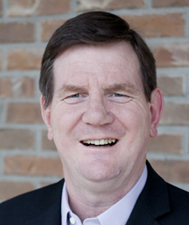Vitruvias Guidance: "Search And Assist" The Proven CDMO

By Louis Garguilo, Chief Editor, Outsourced Pharma

Veteran biopharma executive Roger Graben – he’s been in the industry since 1987 – describes his newest company, Vitruvias Therapeutics, as a “virtual generic pharmaceutical company.” He says it isn’t especially unique other than, “We’ve fewer people than most biopharma in this line of business.” He adds: “But of course, as we grow, that will change.”
A major component to achieving that growth is working effectively and economically with CDMOs.
He’s confident that can be done. “I’m fortunate to have been involved in a broad range of activities enabling me to understand the supply chain from the lab bench to the pharmacy counter,” he says slowly, in a distinguished accent and cadence representative of Vitruvias’ location in Alabama.
“Also,” he says, “having worked at a sponsor manufacturing site and on the CDMO side, I understand the view from both parties … and the real-world challenges each routinely encounters.”

He then went to ProEthic Pharmaceuticals, which was sold to a Japanese biopharma to create Kowa Pharmaceuticals America. He stayed on for 8 years as COO, responsible for broad leadership in areas such as supply chain management and regulatory affairs.
Today he’s president at Vitruvias – founded in 2013 – and back working with ProEthic’s founder, Carl L. Whatley, Jr., CEO, Co-Founder and Chairman of the Board at Vitruvias.
I’d describe Graben’s model for working successfully with CDMOs as “search and assist,” and the first part of that equation comes in the form of a warning to Outsourced Pharma readers.
They Actually Don’t Do That
“To a large degree, I would say if a CDMO hasn’t done it before, they may not be able to do it now, whether they think they can or not,” states Graben.
“CDMOs who have worked on a product or process similar to yours will say things like, ‘We can adapt what we’ve done to make this work.’ But I say if they haven’t actually executed on your dosage form, or demonstrated FDA compliance or all the other contingent factors, there’s a major risk there.”
He continues: “You may be considering working with a CDMO that says, ‘We have an ANDA on file; we’ll have our first FDA inspection next quarter,’ but those are surely other risks. If you have someone who’s done sterile vials but hasn’t done syringes and says, ‘We can add that equipment,’ let me say this clearly: If they haven’t done it – if they’re not proven – there is much more risk there than you may think.”
Well warned.
At the same time, this admonitory from Graben appears to contradict current industry thinking.
That thinking – espoused in these pages – is based on the idea that staying nimble, being willing to branch out into peripheral territory, adding new services, technologies and equipment, are all vital business-survival elements for CDMOs.
One might suggest this divergence has to do with the generics line of work Vitruvias is in. But I’d argue against that. Graben explains that Vitruvias is indeed looking to the more complex side of the generics industry to produce and market innovative products.
No, his advice directly stems from those many years of varied personal experience: Your CDMOs need to be experienced as well.
Biopharma leaders must carve out time for that important CDMO search, and undertake the difficult vetting process to identify the best – and experienced – solutions provider for your projects and company.
But be clear: Graben isn’t suggesting a perfect match is out there. In fact, the second part of his “search and assist” philosophy addresses any imperfections.
If They Can Do It, Add Assistance
A best practice for Vitruvias is providing “tangible assistance” to the service providers it selects.
“We routinely provide our quality, regulatory, and CMC professionals as human resources, on site and at times for extended periods,” explains Graben. “And this is not just to advance our products. If there is something we can do to help that CDMO facility even more generally, we will put our resources into assisting that effort.”
“That’s part of the partnership,” he says, “and also because improving, for example, compliance at that CDMO – even if it originates from something other than our product or relationship – ultimately rewards us as well. We are open to sharing our experienced individuals as a resource for the CDMOs whole company. Ultimately, we aren’t looking at just the product being worked on at that moment. A good partnership will lead to future projects. The better the overall company, the better for us.”
Facing “Search And Assist”
Graben boils his thinking down to advice we’ve all heard before, but rarely stated so clearly.
“There is the old adage that you cannot test quality into a product. By the same token, you cannot manage service and quality into a CDMO,” he says. “So do your site auditing, reference checking, and all those activities before you select your CDMO and sign any agreement.
“If a solid foundation of performance and compliance is not already established, you cannot create it as a customer. As a customer, you can and should always guide and assist, as I’ve mentioned. At times you can require certain improvements. But the foundation must be in place. And CDMO management – from the top down – must expect, support, and require on-time performance and full compliance.”
“Then when working with your selected CDMO,” finishes Graben, “there’s something our chairman and CEO exemplifies and models on a constant basis: communicate, communicate, communicate … And do it face-to-face and on-site as often as possible.
“People simply work better and more effectively together. They go the extra mile for each other when they have met in person and have a degree of a relationship. Out of site can lead to out of mind, so don’t be out of site any longer than necessary. This can be a challenge in global supply chains, but can never be forgotten.”
In fact, none of this simple but sage advice can be forgotten when selecting – and assisting – your service partner.
